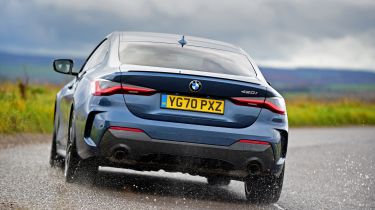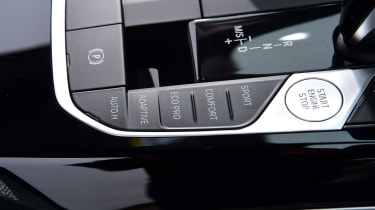BMW 4 Series review - MPG, CO2 and running costs
The 420i petrol offers decent overall efficiency, while buyers also have the option of the all-electric i4 model

In terms of overall affordability the BMW 4 Series is a pretty well-rounded proposition. Although there is no plug-in hybrid version and diesel power is now off the price list, the 420i petrol is reasonably economical, while the i4 model provides an efficient all-electric option.
BMW claims the entry 420i petrol variant will achieve up to 44.1mpg on the combined cycle, with CO2 emissions from 145g/km, so company car users will be paying a 34 per cent Benefit-in-Kind tax rate for the 2023/24 financial year.
Opting for the top-spec M440i xDrive still brings decent enough economy with an average of 36.7mpg, while the (now discontinued) 430i petrol returns up to 42.2mpg and 153g/km of CO2.
Tracking down a used example of the 420d oil burner may suit some buyers as it returns an incredible 61.4mpg on the WLTP combined cycle, with CO2 emissions of 121g/km.
As with the performance figures for the 4 Series, choosing a convertible model also brings a slight penalty to overall efficiency - for example, fuel economy for the 420i drop-top is down by 2.6mpg with CO2 emissions rising 8g/km on average, depending on your chosen trim.
Insurance
The 4 Series Coupe starts from insurance group 30 for the entry-level 420i, rising to group 40 for the 369bhp M440i xDrive performance version. This compares favourably with the Mercedes C-Class Coupe range, which kicks-off in group 35 and rises to the top group 50 for the hot C63 S model.
Depreciation
When pitched against its closest rivals, the latest BMW 4 Series performs well in terms of residual values. Over a typical three-year/36,000-mile ownership period, our expert data suggests that the model should hold onto around 55 per cent of its original list price, which is better than the Audi A5 Coupe at 50 per cent and the Mercedes C-Class Coupe at 44 per cent.










